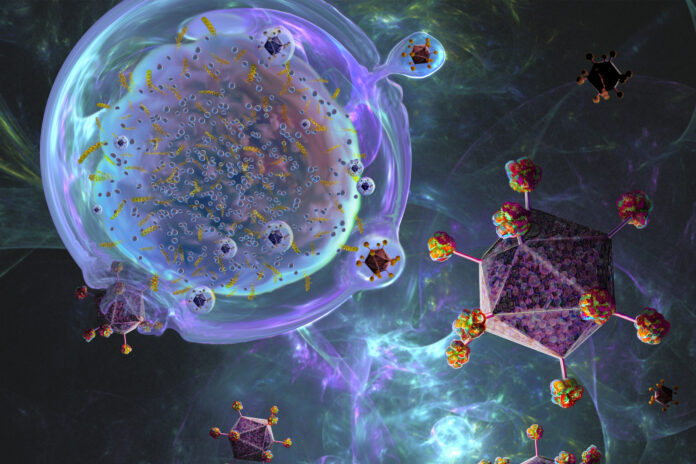
Chimeric antigen receptor T-cell therapy, commonly referred to as CAR-T, has been an approved therapy for various forms of blood cancer. Now, evidence from a small clinical trial has indicated that a CAR-T adaptation could treat myasthenia gravis, a rare autoimmune disease of the nervous system. In the trial, the modified CAR-T demonstrated the potential for a more longer-lasting reduction of myasthenia gravis symptoms and was well tolerated by patients.
The study, published this week in The Lancet Neurology, was sponsored by biopharma company Cartesian Therapeutics, which as supported by grant from the National Institute of Neurological Disorders and Stroke (NINDS).
“Repurposing a groundbreaking therapy such as CAR-T to potentially treat a neurological disorder shows the versatility of immunotherapies in instances where there are limited to no treatment options,” said Emily Caporello, PhD, director of the NINDS Small Business Program.
Myasthenia gravis, a chronic autoimmune disease, is caused when antibodies block or destroy nicotinic acetylcholine receptors (AChR) at the junction between the nerve and muscle, which prevents nerve impulses from triggering muscle contractions. The disease manifests in muscle weakness that intensifies during periods of activity and often improves with rest. Symptoms of the disease are often first diagnosed as a result of weakness in eye muscles.
In the trial by Cartesian, 14 patients with myasthenia gravis received varying doses of the modified CAR-T therapy called Descartes-08. The modified therapy targets the cells that produce the antibodies responsible for the disease. The trial found that ideal dosing for patients was once a week for a duration of six weeks. The patients who received Desacartes-08 showed complete, or near complete, elimination of symptoms which lasted for six months following treatment. Two of the participants no longer required chronic intravenous immunoglobulin, which is the current regimen used to treat the most severe cases of the disease.
“What we saw were deep, durable responses to Decartes-08 that persisted for at least six months following treatment,” said Murat V. Kalayoglu, MD, PhD, president and CEO of Cartesian Therapeutics. “We have now begun a larger randomized, placebo-controlled study, which is the first of its kind for an engineered adoptive cell therapy.”
The researchers noted, however, that while the results of the study in this small cohort are promising, additional clinical studies will be required to fully evaluate the efficacy of the therapy.
CAR-T therapies, which are manufactured using a patients own T-cells to reprogram them to attack specific targets are known produce serious side effects. While these may be more tolerable in the treatment of cancer, these side effects have hampered the development of CAR-T for other chronic conditions.
To alleviate the potential for serious side effects, the team used messenger RNA (mRNA) instead of DNA to reprogram the T-cells, since mRNA doesn’t duplicate when the cells divide as they do with DNA. So unlike CAR-T which aims to have a durable effect from a single administration, the modified CAR-T in Descartes-08 requires a short course of treatment with a number of administrations. This early trial sought to determine the ideal dosing regimen needed to effectively treat myasthenia gravis symptoms with minimal side effects.













